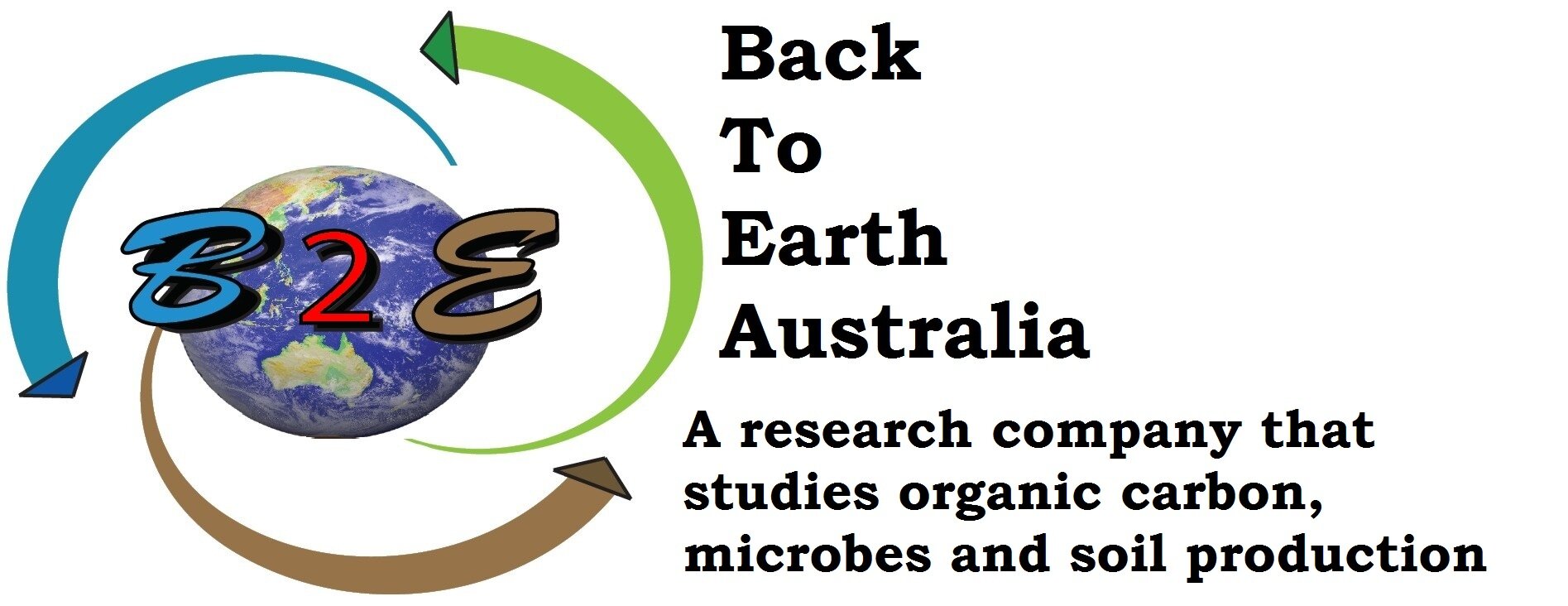Facts
-
Carbon is essential for soil
-
Microbes can unlock minerals locked up in the carbon and the soil
-
Organic carbon exists as humus and fulvate
-
Organic carbon provides a home for microbes which slowly breakdown the humus and fulvate
- Organic carbon increases soils CEC
-
Organic carbon increase the soils ability to retain water
-
Organic carbon assists in regulating soil pH.
In Brief
Company History
The director of Back to earth Australia P/L has been operating worm farms since 1991. Our current site at Tooradin was established in 1999 and since then we have developed techniques for growing earthworms en masse.
Products to be relased soon
We have been developing our worm tea/extraction brewing machine which has been used as a liquid fertiliser with excellent results. This tea has been used on our orchard onsite which has reduced disease to an excellent level.
Our brew machine is currently being re-tooled to allow us to produce large volumes to reduce the overall cost to the farmer.
Current products
EM Casting compost blend (20%) - $35 per cubic metre
Liquid products - Currently not available
---Sponsored External Link---
Welcome
-
Internal links
Special offer
Email us for free advice on which products will suit your unique situation. If you have any scientific tests on your paddock we will be able to best match which products are best for you.
Email us through hereMicrobes
Since the advent of modern farming the microbes that live in the soil have been selectively changed over time. This change is mediated by the use of synthetic fertilisers and -cidal liquids that kill the weaker microbes in the soil.
Due to this the selection of microbes that can grow quickly and off the only living thing left in the soil (the plant) creates ideal conditions for many type of diseases.
In healthy soil these disease inducing organisms, bacteria, fungi and insects would have active composition for resources.
The best way to assess the activity of these microbes should also be utilised in test stripes.
Carbon
Humus and organic carbon are the main active ingriedent in compost and castings. It is the organic carbon that is removed during poor land management such as over tilling, bare-soil paddocks and excessive fertiliser use.
Salinity is another problem that large amounts of carbon in the form of compost can resolve the issue over time. The use of irrigation and poor water management is the root of this problem, compost can only allow minimal native planting to occur.
Erosion can be amended with compost and a zero-tillage policy. If the site is steep it would best practice to terrace the walls to allow better soil retention.
Lost top soil is easily ameneded with applications of compost and compost castings blends. Applied yearly or every second year with a polutry manure rotiation will provide excellent yields.

